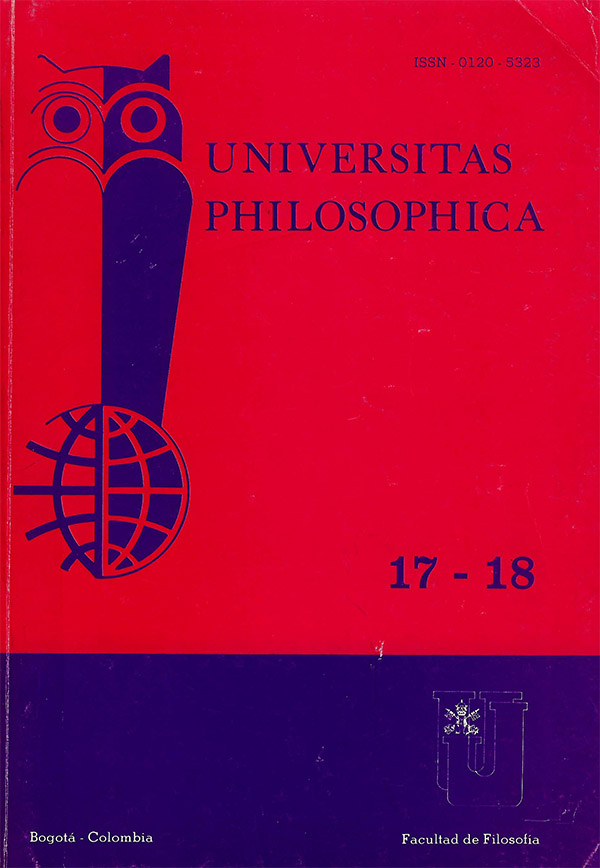Resumo
El presente texto examina cómo la indagación schegelliana sobre la libertad humana es realmente una deducción trascendental de la cultura, deducción que amplía la fundamentación kantiana de la metafísica de las costumbres, presentando de esta manera el idealismo trascendental como superación necesaria del formalismo kantiano de la autodeterminación racional de la voluntad. La deducción de las producciones con conciencia, en las cuales se articula -en su necesidad- la identidad originaria del Yo y el acto absoluto de la autoconciencia, es el objeto de la filosofía práctica. La comprensión de estas producciones es presentada en el Sistema del idealismo trascendental bajo tres preguntas fundamentales:¿ Cómo es posible el acto originario de libertad?, ¿ cómo este acto originario se le objetiva al Yo? y ¿ cómo es posible la unidad entre libertad y naturaleza. A lo largo de la exposición de estos tres problemas, se muestra cómo la filosofía práctica schegelliana retorna la preocupación de Fichte por establecer un puente entre la filosofía de la naturaleza y la filosofía del espíritu. La importancia de esta deducción trascendental de la cultura consiste en ubicar la pregunta por la libertad humana bajo el horizonte de una exposición sistemática del absoluto ensu devenir inmanente.Esta revista científica se encuentra registrada bajo la licencia Creative Commons Reconocimiento 4.0 Internacional. Por lo tanto, esta obra se puede reproducir, distribuir y comunicar públicamente en formato digital, siempre que se reconozca el nombre de los autores y a la Pontificia Universidad Javeriana. Se permite citar, adaptar, transformar, autoarchivar, republicar y crear a partir del material, para cualquier finalidad (incluso comercial), siempre que se reconozca adecuadamente la autoría, se proporcione un enlace a la obra original y se indique si se han realizado cambios. La Pontificia Universidad Javeriana no retiene los derechos sobre las obras publicadas y los contenidos son responsabilidad exclusiva de los autores, quienes conservan sus derechos morales, intelectuales, de privacidad y publicidad.
El aval sobre la intervención de la obra (revisión, corrección de estilo, traducción, diagramación) y su posterior divulgación se otorga mediante una licencia de uso y no a través de una cesión de derechos, lo que representa que la revista y la Pontificia Universidad Javeriana se eximen de cualquier responsabilidad que se pueda derivar de una mala práctica ética por parte de los autores. En consecuencia de la protección brindada por la licencia de uso, la revista no se encuentra en la obligación de publicar retractaciones o modificar la información ya publicada, a no ser que la errata surja del proceso de gestión editorial. La publicación de contenidos en esta revista no representa regalías para los contribuyentes.


